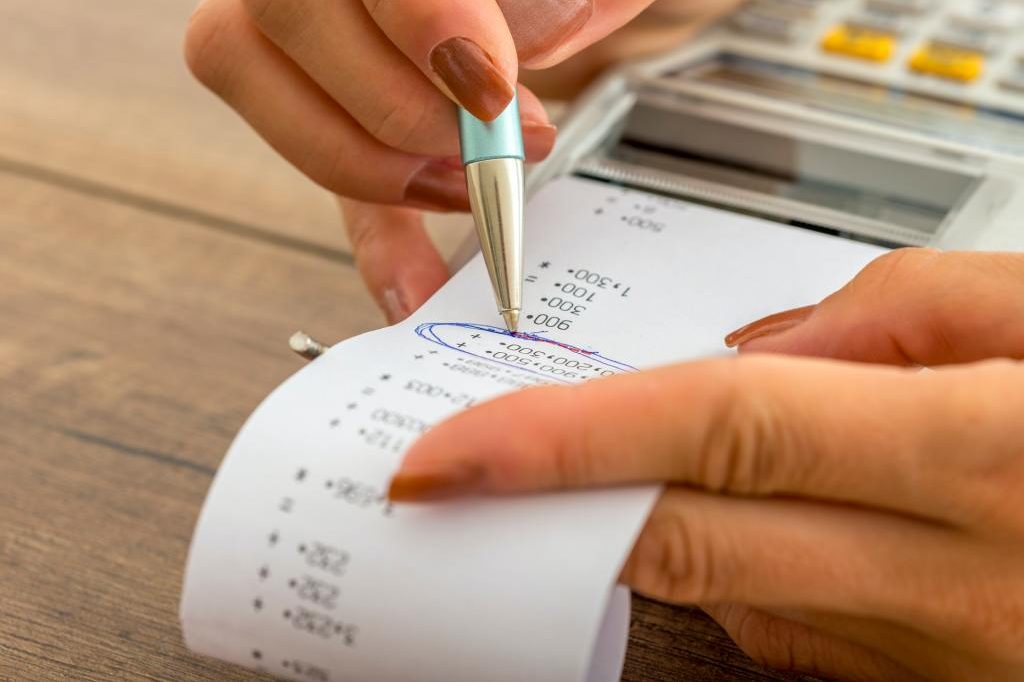Alberta tax overview
Overview
The Government of Alberta maintains a tax system that is fair, efficient and effective in generating a stable source of revenue. For more information, see:
- Alberta’s tax plan (PDF, 6.7 MB)
- Alberta’s tax advantage
Personal income tax
Personal income tax is collected for the Government of Alberta by the Canada Revenue Agency, at the same time federal income tax is collected.
Personal income tax rates
The rates are based on the following income tax brackets:
| Tax rate | Tax bracket |
|---|---|
| 10% | Up to $131,220 |
| 12% | $131,220.01 to $157,464 |
| 13% | $157,464.01 to $209,952 |
| 14% | $209,952.01 to $314,928 |
| 15% | $314,928.01 and up |
Source: Treasury Board and Finance
The dividend tax credit rate for dividends paid out of income taxed at the general corporate income tax rate (eligible dividends) will be adjusted on January 1, 2021, corresponding with the acceleration of the general corporate income tax rate reduction.
More information on personal income tax
For more information, see personal income tax.
Questions about your personal income tax should be directed to the Canada Revenue Agency.
Corporate income tax
COVID-19 response: Corporate income tax deferral
Alberta businesses with corporate income tax balances that become owing on or after March 18, 2020 or instalment payments coming due between March 18, 2020 and August 31, 2020, can defer making these payments until August 31, 2020. For more information, see Special Notice Vol. 5 No. 56 – Deferral of Corporate Income Tax Payments.
For updates on COVID-19, visit COVID-19 info for Albertans.
Corporations doing business in Alberta are generally required to pay Alberta corporate income tax and file a corporate income tax return with Alberta Tax and Revenue Administration.
Corporate income tax rates
Corporate income tax rate is 8% (effective July 1, 2020)
As part of Alberta’s Recovery Plan, government is accelerating the Job Creation Tax Cut, reducing the general corporate income tax rate to 8% on July 1, 2020, a year and a half sooner than originally planned. Supporting legislation will be tabled at a later date, and details on this page will be updated as soon as possible.
Alberta’s Recovery Plan also introduces the Innovation Employment Grant (IEG), a program that will help create jobs for Albertans by supporting small and medium-sized businesses that invest in research and development.
The Job Creation Tax Cut is the government’s legislated plan to reduce Alberta’s general income tax rate on businesses from 12% to 8%. Alberta’s small business tax rate is 2% (see current and historical corporate income tax rates).
| General corporate income tax rate | Tax rate |
|---|---|
| July 1, 2015 to June 30, 2019 | 12% |
| July 1, 2019 | 11% |
| January 1, 2020 | 10% |
| July 1, 2020 | 8% |
To further improve Alberta’s competitiveness and encourage investment, Alberta paralleled federal measures to enhance the capital cost allowance (CCA) regime.
These measures allow corporations to claim the cost of new capital assets more quickly for tax purposes, improving a company’s cash flow and making it more attractive for them to invest in new assets. Consistent with the federal announcement, these measures begin to phase out in 2023 and will be completely phased out by 2027.
More information on corporate income tax
See the following information from Alberta Tax and Revenue Administration:
Fuel tax
Alberta’s fuel tax is applied to purchases of fuel, including gasoline, diesel, propane (for motive purposes), aviation fuel, locomotive fuel and renewable fuels.
Fuel tax rates
The fuel tax rates are as follows (see current and historical fuel tax rates on different types of fuel):
| Fuel type | Tax rate |
|---|---|
| Gasoline | 13 cents per litre |
| Diesel | 13 cents per litre |
| Propane | 9.4 cents per litre |
More information on fuel tax
See the following information from Alberta Tax and Revenue Administration:
Related programs
The Tax Exempt Fuel User (TEFU) and Alberta Farm Fuel Benefit (AFFB) programs provide tax exemptions of nine cents per litre on the purchase of marked gasoline and marked diesel used for qualifying purposes.
The International Fuel Tax Agreement (IFTA) is an agreement among American and Canadian jurisdictions that enables uniform collection and distribution of fuel taxes paid by motor carriers traveling in several jurisdictions. IFTA membership allows the carrier to significantly reduce the paperwork and compliance burden for fuel tax reporting.
Tobacco tax
Alberta’s tobacco tax is applied to all tobacco products purchased in the province, including cigarettes, loose tobacco and cigars.
Tobacco tax rates
Alberta’s tobacco tax rates are as follows (see current and historical tobacco tax rates on different types of tobacco products):
| Tobacco product | Tax rate |
|---|---|
| Cigarettes | 27.5 cents per cigarette or tobacco stick |
| Loose tobacco | 41.25 cents per gram |
| Cigars | 142% of the taxable price of the cigar (minimum tax per cigar of 27.5 cents and a maximum of $8.61) |
More information on tobacco tax
See the following information from Alberta Tax and Revenue Administration:
Tourism levy
COVID-19 response: Deferral of Tourism levy remittances
As part of government’s response to COVID-19, Hotels and other lodging providers are permitted to keep tourism levy amounts collected between March 1, 2020 and December 31, 2020. Providers that have already remitted tourism levy amounts collected on or after March 1, 2020 are entitled to a refund.
A deferral of the tourism levy remittances remains in place until August 31, 2020 for unpaid amounts that became due to the government on or after March 27, 2020, but are not eligible for this additional assistance.
Hotels and other lodging providers are still expected to file returns, as required by legislation, and must continue to collect the tourism levy from guests staying at their properties during this period. For more information, see Alberta Tourism Levy and TRA online services
For updates on COVID-19, visit COVID-19 info for Albertans.
The tourism levy is charged on most types of temporary accommodation in Alberta.
Tourism levy rate
The tourism levy rate is 4% on the purchase price (see current and historical tourism levy rates).
More information on the tourism levy
See the following information from Alberta Tax and Revenue Administration:
Education property tax
All property owners in Alberta (with some exceptions, such as non-profit organizations and seniors’ lodge facilities) are required to pay the education property tax, based on the property’s assessment value and an equalized assessment process.
This tax revenue is pooled into the Alberta School Foundation Fund. It is then distributed among Alberta’s public and separate school boards on an equal per-student basis.
More information on the education property tax
See more information from Alberta Municipal Affairs:
Freehold mineral rights tax
The freehold mineral rights tax is:
- an annual tax on petroleum and natural gas mineral rights within provincial boundaries, not owned by the Government of Alberta
- assessed on revenue derived from production from freehold oil and gas properties
- assessed annually based on calendar year production
- levied on each owner of a petroleum or natural gas mineral right as shown on the estate fee simple Certificate of Title
More information on the freehold mineral rights tax
See more information from Alberta Energy:
Insurance premiums tax
The insurance premiums tax is payable by insurers on premiums receivable on contracts of life, accident, sickness and all other contracts of insurance transacted in Alberta during a year.
Insurance premiums tax rates
| Insurance premium | Tax rate |
|---|---|
| Life, accident and sickness insurance | 3% |
| Other insurance | 4% |
More information on the insurance premiums tax
See the following information from Alberta Tax and Revenue Administration:
Other programs
Emergency 911 levy
Wireless subscribers, such as cell phone users, must pay a monthly 911 levy of $0.44 on each of their active wireless devices that has a phone number with an Alberta area code. The money generated by the 911 levy, after administrative costs, goes to 911 call centres in Alberta to help them provide services and maintain their systems.
See more information from Alberta Tax and Revenue Administration, which administers this program on behalf of Alberta Municipal Affairs:
Health cost recovery
Under the Health Cost Recovery program, automobile insurers remit an amount for each calendar year representing their share of the total estimated Crown cost of those health services.
See more information from Alberta Tax and Revenue Administration, which administers this program on behalf of Alberta Health:
Alberta Indian Tax Exemption (AITE)
COVID-19 response: AITE cards
During the Alberta Public Health Emergency (COVID-19), TRA may be unable to issue new or replacement AITE cards on a timely basis. Effective immediately, the expiry dates of all active AITE cards are extended until further notice.
All AITE retailers providing the exemption to eligible consumers on reserve are authorized to accept a federal Certificate of Indian Status card if the eligible consumer does not have an AITE card.
Individuals and bands requiring a new or replacement AITE card are still required to apply to TRA under the AITE program, and TRA will issue the card as soon as possible.
For more information, see Special Notice Vol. 4 No. 17 – AITE Cards During Public Health Emergency.
Credits, rebates and exemptions
See the Credits, rebates and exemptions page.
Contact
Personal income tax
Contact the Canada Revenue Agency or visit their Get ready to do your taxes page.
Education property tax
See the Education property tax page, and more information in the Property tax section.
Freehold mineral tax
See the Freehold mineral tax page.
All other tax and levy programs are administered by Alberta Tax and Revenue Administration
(Administrative questions on Alberta corporate income tax, carbon levy, fuel tax, tobacco tax, tourism levy and other programs)
Contact Alberta Tax and Revenue Administration



